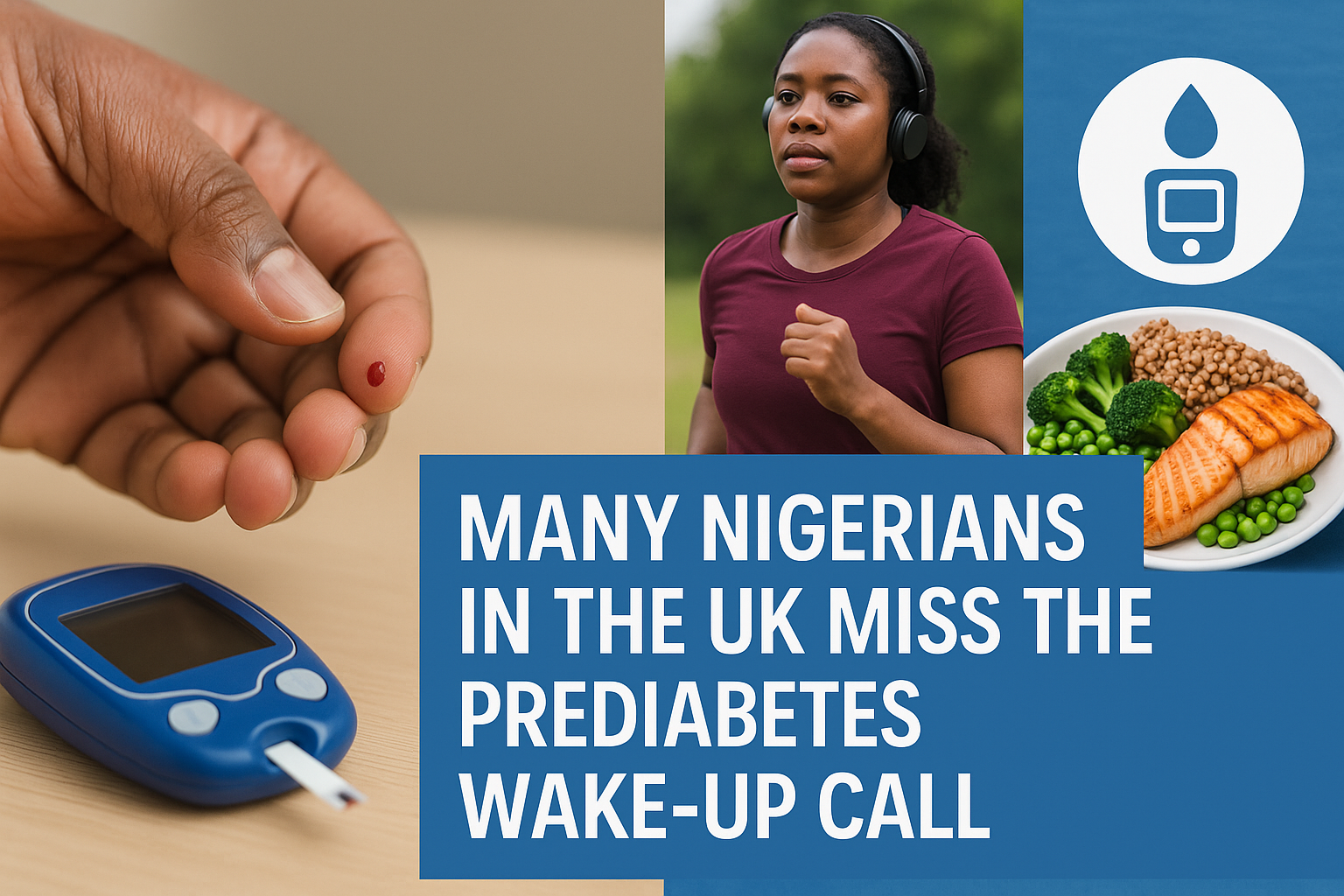Naija UK Connect Health Bulletin
Type 2 diabetes doesn’t just happen overnight. For many, it begins with a silent warning sign called prediabetes—a stage where blood sugar levels are higher than normal, but not high enough to be called diabetes. At this point, you may not notice any symptoms, but your body is already signalling that changes are needed.
This stage is your wake-up call—and ignoring it could lead to full-blown diabetes, which increases your risk of heart disease, stroke, kidney damage, and amputations. Sadly, most people don’t even know they have prediabetes.
🚨 Only 1 in 10 People Know They Have Prediabetes
Studies from the US show that only 10% of those with prediabetes are aware of it. While this research is American, the picture in the UK isn’t much different—millions are at risk, especially within the Black African and Caribbean communities, who are more likely to develop Type 2 diabetes at a younger age.
In the UK, the NHS Health Check is available for people aged 40 to 74 every five years. It includes a simple blood sugar test that could flag prediabetes early. But if you don’t go for these checks—or you’re younger and unaware of your risk—you could miss the opportunity to take action.
🇬🇧 UK Guidance: Who Should Get Tested?
The NHS and Diabetes UK recommend that you get tested if you:
- Are over 40 (or over 25 if you’re African, Caribbean, or South Asian)
- Have a close relative with diabetes
- Are overweight or obese
- Have high blood pressure or high cholesterol
- Had gestational diabetes during pregnancy or gave birth to a baby over 4.5kg (9.9 lbs)
- Live a sedentary lifestyle (little physical activity)
🩺 You can check your risk online using the Diabetes UK Know Your Risk Tool.
💡 What Can You Do If You’re at Risk?
Don’t panic—prediabetes is not diabetes. It’s a warning sign, not a diagnosis. The good news? Lifestyle changes can reverse it.
Here’s a three-part action plan:
- Lose a bit of weight – even 5-10% of your body weight makes a big difference.
- Move more – walk briskly for 30 minutes a day, five times a week.
- Eat smarter – cut down on sugary drinks, processed foods, and fatty meats. Choose whole grains, vegetables, and lean proteins like fish and beans.
These steps not only help prevent diabetes, but also reduce your risk of stroke, heart attack, and even some cancers.
👨👩👧 For Naija Families: Why It Matters
As Nigerians in the UK, we may carry cultural eating habits and family health patterns that increase our risk. That doesn’t mean we can’t enjoy our favourite dishes—but we must adapt how we cook and how much we eat.
✨ Switching to boiled or grilled options, reducing palm oil, and adding fibre-rich vegetables to meals can help.
Talk to your GP about getting tested, especially if diabetes runs in your family or if you’re carrying extra weight. You can also ask to be referred to the NHS Diabetes Prevention Programme, which offers free help to reduce your risk.
🙌 Let’s Not Sleep on This
Prediabetes is your body whispering, “Change now.” Don’t wait for a diabetes diagnosis to force your hand. Start small, stay consistent, and put your health first.
🟢 Your future self—and your family—will thank you.
Join Our WhatsApp Channel
Stay updated on the latest UK news, including education, health, job openings, and more for those living in the UK!
Join here: Naija UK Channel
Also, follow us on our social media channels for the latest updates and discussions:
- Twitter: @NaijaUKConnect
- Facebook: Naija UK Connect
- Instagram: @naijaukconnect




